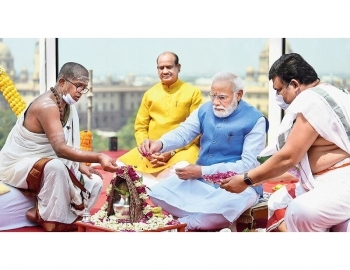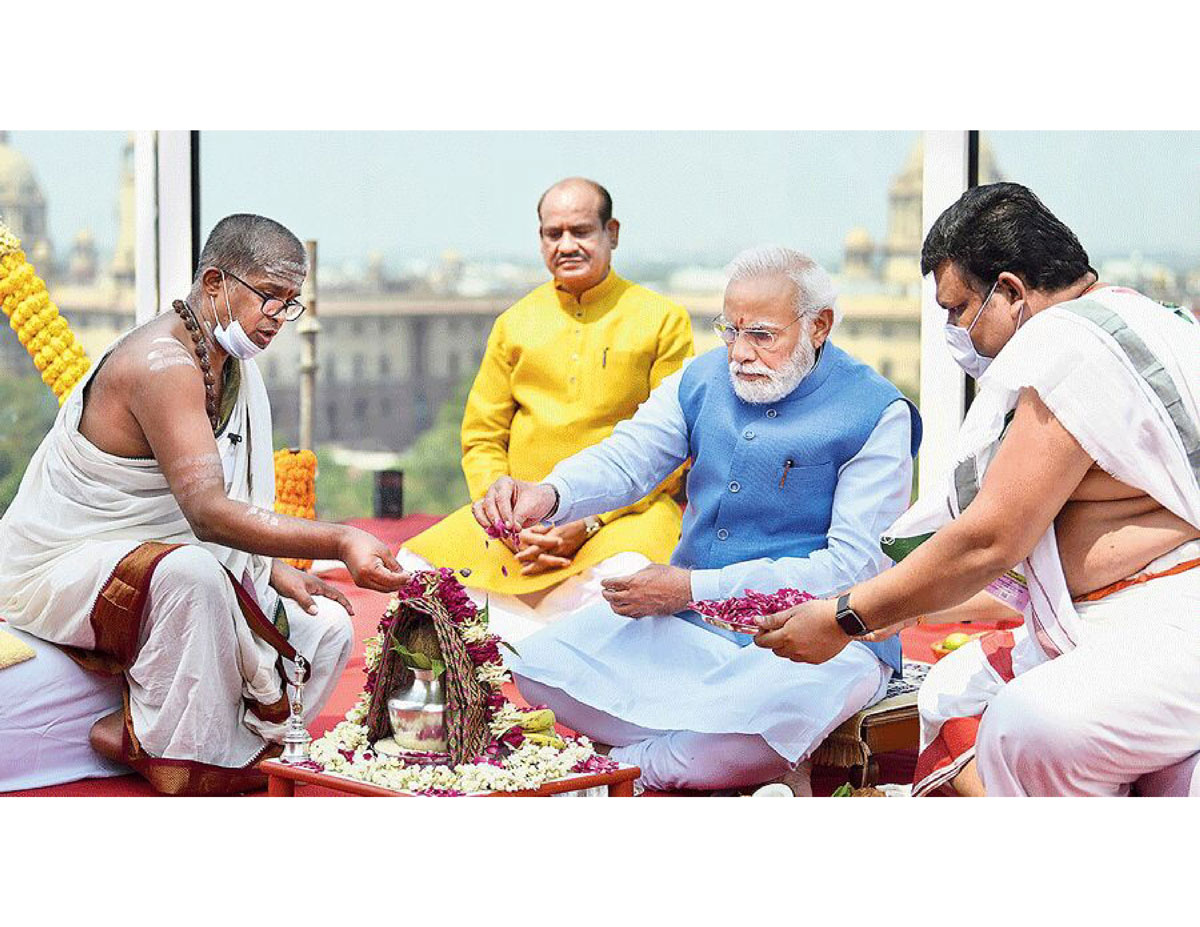
.png) Dr Suresh Mathew
Dr Suresh Mathew

The country is set to get a new Parliament building to ‘house’ the sanctum sanctorum of democracy. Prime Minister Narendra Modi recently unveiled the Ashoka Pillar, the national emblem, on the top of the upcoming building, and he performed a puja according to Hindu rituals and prayers. Leaders, cutting across party lines, made disparaging remarks over conducting a religious ceremony of one faith when the Constitution of India stipulates that the State does not profess or practice any religion. Moreover, the Hindu rituals were held at a place which is to uphold the Constitution, the preamble of which proclaims India as a secular state.
Cut to a similar incident down South in Tamil Nadu. A DMK MP who had gone to attend Bhoomi puja marking the restoration work of a lake in his constituency blurted out at the government officials for conducting prayers and rituals of only Hindu religion. He blasted the officials for ignoring other religions and their leaders at a government function which is meant for all irrespective of religious affinities and affiliations. In a related development, Dravidar Munnetra Kazhagam has asked Tamil Nadu Chief Minister to do away with religious ceremonies and rituals performed by priests in government functions. As the government belongs to all those who believed in different religions -- even atheists and agnostics -- avoiding rituals and religious ceremonies would protect the constitutional norms. Political probity demands that the State cannot differentiate between religions; it cannot treat one religion with special indulgence and ignore the others.
The puja at the installation of the national emblem is incongruous with the national ethos and constitutional propriety. It is unconstitutional to favour one religion, disregarding the others. The function of installing the 9500-kg Ashoka Pillar with rituals of the majority religion weighs down heavily on the secular tenets of the Constitution. Separation of religion from State and its functions is fundamental to a secular nation. The soul of secularism cannot be stained by rituals of a particular religion. The corner stone of secularism is State’s disengagement with religion.
The best example for separation of religion from the State and the Government came from Pandit Jawaharlal Nehru who expressed his displeasure over then President Dr. Rajendra Prasad’s decision to inaugurate the refurbished Somnath Temple. Nehru’s contention was that in a secular state, it is not advisable for the State personnel (in this case the head of the State) to get engaged in public activities related to any religion. It is this vision of Nehru on which a secular state should be built. If top constitutional and government functionaries get involved in rituals, pujas and prayers of any particular religion, it would sound the death knell of secularism.
India is not a theocratic state, unlike its neighbour Pakistan, but a secular one which gives every religion the right to be treated equally. The government that focuses on refurbishing and renovating religious places at the expense of public exchequer would do well to remember the stand Nehru took on the issue. It is tantamount to giving pride of place to the majority religion to the exclusion of others. Modi performing puja at the foundation laying ceremony of the grand temple at Ayodhya and during the unveiling of the national emblem atop Parliament building is diametrically opposed to secularism as enumerated in the Constitution. The government is ostensibly making the road to Hindu Rashtra wider and smoother.